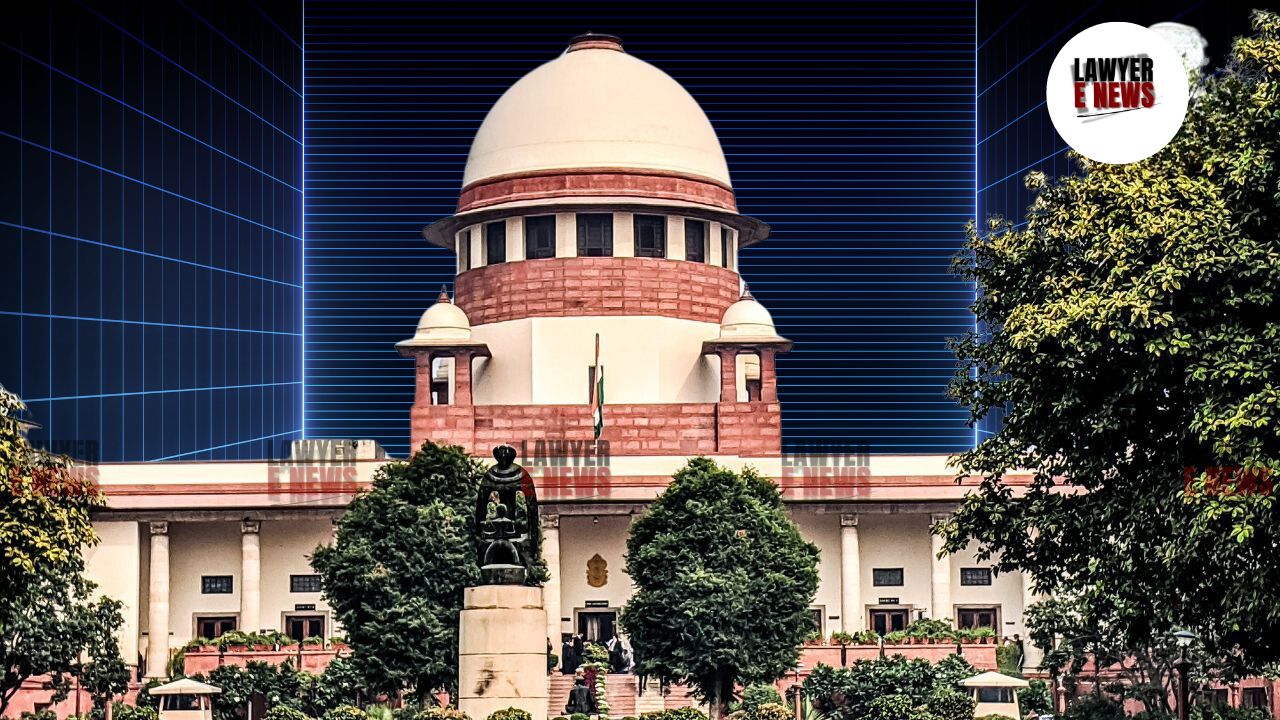-
by Admin
16 February 2026 4:21 AM



Abetment Requires Instigation, Not Passive Presence: Supreme Court Quashes Conviction for Aiding Rape. In a significant ruling set aside the conviction of Seetaben Laghdhirbhai, who had been found guilty of abetment of rape and harboring an offender under Sections 376, 212, and 114 IPC. The Court held that the mere presence of an accused at the scene of a crime does not amount to abetment unless there is evidence of instigation, conspiracy, or active assistance.
Justice Abhay S. Oka, delivering the judgment for the bench that also included Justice Ujjal Bhuyan, observed: "For an accused to be convicted of abetment under Section 107 IPC, the prosecution must establish that the person instigated the crime, conspired to commit it, or intentionally aided its commission. Mere passive presence does not satisfy any of these conditions."
Woman Accused of Harboring Rapist Acquitted Due to Lack of Evidence
The case arose from an incident in April 2008, where the prime accused allegedly kidnapped and raped a minor girl. The appellant, Seetaben Laghdhirbhai, was accused of harboring the offender and preventing the victim from leaving the house where the crime was committed. The Trial Court convicted the prime accused under Sections 363, 366, and 376 IPC, while Seetaben was convicted under Sections 212 and 114 IPC for allegedly aiding the crime and shielding the offender. The Gujarat High Court upheld her conviction, leading to the present appeal before the Supreme Court.
The Supreme Court, after a careful review of the evidence, found critical inconsistencies in the victim’s statements. It held that there was no evidence to show that the appellant had knowledge of the crime or had in any way facilitated it.
"Mere presence at a location where an offence occurs does not automatically make a person an abettor. There must be clear proof that the accused either encouraged or assisted the crime. In this case, the prosecution has failed to establish that the appellant played any role in aiding the accused," the Court ruled.
Supreme Court Rejects Prosecution’s Argument That Seetaben Aided the Crime
The prosecution argued that the appellant knowingly sheltered the rapist and restrained the victim from leaving. However, the Supreme Court noted that the victim's testimony during cross-examination directly contradicted her earlier statement.
The victim initially testified: "I told Sitaben that I had been lured and brought to her house, and she did not allow me to leave." However, during cross-examination, she admitted: "I had not stated in my police statement that I informed Sitaben about being lured. It is not true that Sitaben did not allow me to leave the house."
The Court found this contradiction fatal to the prosecution’s case. "When a witness omits a key fact in the initial statement and introduces it later in court, it amounts to a contradiction. Such an afterthought cannot be the basis for conviction," the bench remarked.
Harboring an Offender Requires Knowledge and Intent, Neither Is Proven Here
The Supreme Court further rejected the charge of harboring an offender under Section 212 IPC, ruling that there was no evidence that the appellant had any knowledge of the crime or intended to shield the accused from the law.
"The offence of harboring an offender is made out only when the accused knowingly provides shelter to a criminal with the intent of protecting them from punishment. The prosecution has failed to prove that the appellant had any such knowledge," the judgment stated.
Citing the landmark ruling in State of Maharashtra v. Damu (2000) 6 SCC 269, the Court reiterated that "to sustain a conviction under Section 212 IPC, the prosecution must prove beyond doubt that the accused had actual knowledge of the crime. Mere suspicion or conjecture is not enough."
Acquittal Ordered, Bail Bonds Cancelled
Concluding that the prosecution had failed to establish guilt beyond a reasonable doubt, the Supreme Court set aside Seetaben Laghdhirbhai’s conviction.
"Since the prosecution has not proven that the appellant instigated, conspired, or aided the crime, her conviction is legally unsustainable. She is acquitted of all charges, and her bail bonds stand cancelled," the Court declared.
It further clarified that the acquittal applied only to the appellant and did not affect the convictions of the other co-accused.
"Criminal Law Cannot Be Stretched Beyond Reasonable Limits"
The judgment emphasized the importance of proving criminal intent before convicting a person of abetment. The Court referred to several key precedents, including Kartar Singh v. State of Punjab (1994) 3 SCC 569, which held that abetment requires active participation or encouragement, not passive presence.
Reaffirming the principle laid down in Abu Thakir v. State (2010) 5 SCC 91, the Court stated: "The law does not permit courts to assume guilt merely based on association. Abetment must be established with clear evidence, not conjecture."
Strengthening Legal Safeguards Against Wrongful Conviction
This ruling serves as a powerful reaffirmation of the principle that guilt must be proven beyond a reasonable doubt. The Court’s decision reinforces the need for clear, cogent evidence in cases of abetment and harboring an offender, ensuring that criminal law is not misused to punish individuals without proper justification.
By quashing the conviction, the Supreme Court has set a crucial precedent, ensuring that "criminal liability must rest on proven intent and active participation, not mere presence or association."
Date of Decision: 16/01/2025
